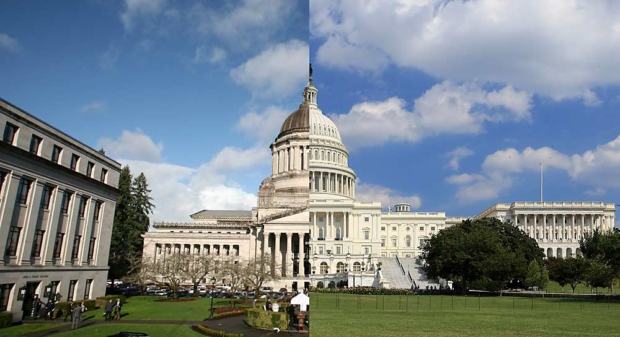
Washington growers have escaped what would have been the first fee in the country to pay for the state’s administration of the H-2A foreign guest worker program.
Earlier this year, Washington legislators passed a new law creating a dedicated H-2A office within the state’s Employment Security Department and an advisory committee of farmworkers and employers. However, lawmakers turned down a proposed grower fee to help pay for the state’s share of the workload in processing the applications. Washington Gov. Jay Inslee signed the bill into law in late May.
“That was going to be a really awful precedent to ask individual growers to backfill underfunded federal mandates,” said Jon DeVaney, president of the Washington State Tree Fruit Association in Yakima, Washington, in May at an industry meeting.
Growers already pay fees at the federal level for H-2A processing. The original measure in Washington state would have charged growers an additional $1,000 for every H-2A application plus $100 for every worker they hired.
Growers elsewhere should be relieved, too, said Michael Marsh, president of the National Council of Agricultural Employers, which advocates in national policy matters. What happens in Washington and California sometimes spreads to other states.
“Bad ideas are like wildfires,” Marsh said. “We want to put them out before they cross state lines.”
To run the H-2A visa program, the U.S. Department of Labor works with state workforce agencies to verify growers first tried to find domestic workers and adhere to the contracts of the foreign workers they hire, as well as field complaints and conduct wage surveys. Advocacy groups have long sought additional oversight from the state, seeking more field checks of housing, wages and other working conditions.
Use of the H-2A program has skyrocketed in recent years without any increase in funding. The federal government certified 243,000 H-2A positions in 2018, nearly triple the number 10 years ago.
“The rapid rate of growth has been simply more than they can handle,” Marsh said.
A few years ago, the federal government made a special appropriation of nearly $20 million to help clear the backlog of applications. That has all been spent. This year, a proposed appropriations budget by the U.S. House of Representatives includes an extra $8.25 million in H-2A spending, roughly a 12 percent increase, Marsh said. It would be the first increase in six or seven years, and it might not even be enough, Marsh said.
Tree fruit and berry crops are among the highest using commodity groups, while Washington is the third highest H-2A hiring state. Marsh worries that other states may follow in increasing oversight of H-2A use, which he considers primarily in the federal purview.
“The demand’s not going to go away,” he said. •
—by Ross Courtney






Leave A Comment